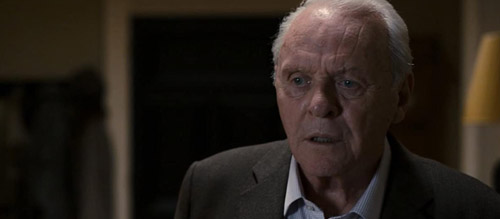2021 Oscars Best Picture Nominees Ranked
3. Promising Young Woman
There is a lot being written about Emerald Fennell’s surprise Oscars front-runner Promising Young Woman, but all of it is bringing into focus conversations about sexism, gendered violence and the daily threats that women face. Each of the think pieces published in print and online, whether agreeing with the presentation of Promising Young Woman and its issues or not, are highlighting the very purpose of the film’s release: to continue the public conversations regarding the normalisation of violence towards women.
Anchored by a characteristically phenomenal performance from Carey Mulligan, Promising Young Woman isn’t a technical triumph in the ways that other Best Picture nominees are in 2021, but it very much knows what (or in this case who) it has got and does its utmost to highlight that. Mulligan’s Cassandra is a woman with rage boiling underneath her every action, trauma fuelling her fight, and she is performed to the very edge of her limitations by Mulligan in an unforgettable lead performance.
Perhaps the most divisive aspect of Promising Young Woman is its third act twist, but in many ways this is also its masterstroke. Films so rarely take risks in ways like Promising Young Woman does with its third act, Emerald Fennell writing her stylistic signature into the very construction of the piece from the page to the screen and thus announcing herself as a filmmaker with a unique authorial presence.
Promising Young Woman is a film for our times, but it is also one produced with that knowledge in mind and fast tracked into production to capitalise on the issues at its heart. As such, perspectives either side of the “good or bad” debate are worth highlighting, and the film’s divisiveness worth discussing.
As a Best Picture nominee Promising Young Woman indicates a willingness for The Academy and wider society to finally acknowledge and contemplate gendered violence, and as a product of our culture it is a loud, risk-taking presence underpinned by unique artistry.
2. The Father
Florian Zeller’s The Father may be the most extraordinary feature directorial debut of recent years, the Frenchman’s adaptation of his own stage play not only terrifically realised in terms of its writing and characterisation, but excelling in visual terms to offer something that is, at its core, wholly cinematic.
Playing out like something akin to a horror film taking place within your own mind, The Father plays with perspective, an unease settling deep into the heart of the piece as we are misdirected by a screen magician performing a series of magic tricks, each reveal being jaw-dropping not only in construction and presentation but in wider thematic meaning to the story itself. Zeller is intent on breaking apart the fabric of linear cinema to best represent his protagonist’s journey through dementia, entire sets being redecorated and conversations breaking off and circling back in much later scenes in a manner that leaves you just as off-balance as the protagonist is. Zeller understands that we as an audience have an inherent trust in the filmmaker to guide us through his story, and he pointedly and emphatically breaks that bond to offer something that lifts the entire form.
Anthony Hopkins is simply untouchable in the lead role, this performance being arguably the great performance of his long-heralded career. He is vicious, vulnerable, charming and difficult. Not a single line is out of place, the delivery of every piece of dialogue so outstanding that you can’t help but to be swept away into the character. Physically, he’s just as impressive, revisiting some of his most famous antagonists in brief moments of volatility and becoming a shell of himself to offer his character’s vulnerability. His is one of the performances of the past decade, and a deserving counterpart to the excellence on offer elsewhere in the film.
The Father can at times feel melodramatic, and it doesn’t leave you in quite the same place that it takes you to throughout its runtime, and as such it isn’t quite the fully formed masterpiece that some of Zeller’s follow-up work might one day be, but so far as debuts go there are few as confident and intelligent as The Father, one of the highlights of 2021’s awards season.
1. Nomadland
If any of the 2021 Oscar Best Picture nominees are fully fledged masterpieces ready to join the annals of history as all-time great American films it’s Nomadland. Everything that director-writer-editor Chloé Zhao has constructed is wholeheartedly artistic, the filmmaker putting together a classic of the cinéma vérité style as she tells of a nomad’s trauma, purpose and existence in, alongside and outside of our modern world.
Nomadland so delicately handles the real-life nomads it follows and presents that it is not immediately obvious how emphatic of a filmmaking vision the film is. In many ways, Nomadland is wholly American, the wide lenses capturing the beautiful landscapes of the United States, Frances McDormand’s Fern taking temporary residence in some of the country’s most iconic destinations and working jobs in some of its most well known businesses, the cinematography taking elements of the old westerns and the films of Terrence Malick to invite natural lighting into each of its shots, presenting the idea that the film itself is just as reliant upon nature as the film’s protagonist is. In other ways, Nomadland is in opposition to the American way, its story character-driven as opposed to event-driven, the pace constant but slow and soft, the documentary aspects more akin to European sensibilities. As such, Nomadland is itself as Fern is: not a part of the USA but not apart from it either. The film, like Fern, is nomadic.
Frances McDormand offers a performance that is truly special. At all times the camera is fixed on her, intent on capturing her journey and her journey alone. In reality she spent a lot of time with real nomads and formed bonds with many of the ones who appear in the film, and on screen she is more vulnerable than we have perhaps ever seen her before, her character’s self-sufficiency and carefree attitude being the shell that encases a woman filled with trauma and absent of a reason to exist, McDormand carrying that weight with all the gravitas of one of the big screen’s true greats.
As a construct, Nomadland is truly special, a deep and complex vision. It is technically an adaptation, but Zhao’s influence is present in every frame, every exchange of dialogue and every choice. As Fern moves through the United States in her van, learning to let go of her past as she goes, the score transitions from basic piano into a full orchestra of sound, indicating her growth and steadily forming one of the great modern road movies in the process.
Recommended for you: 2020 Oscars Best Picture Nominees Ranked
In a year in which exhibitors were forced to close their doors and cinema was effectively paused, the 2021 Oscars Best Picture nominees are each vital representations of the exceptional work that has remained present within the industry during its most difficult time, and act as a stark reminder that film is, always has been and always will be made up of more than just box office hits and blockbuster tentpoles.
Which Best Picture nominee do you think is the best? Would you have ordered the films differently? Let us know in the comments below and be sure to follow The Film Magazine on Facebook and Twitter to never miss another list like this one.




